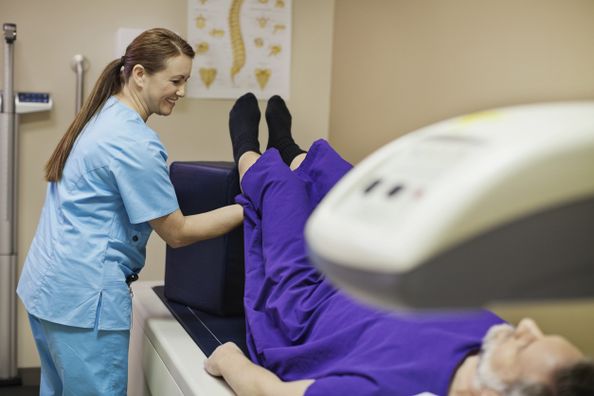Growing old may be inevitable, however, aging well is a choice. Thanks to medical advancements and increased access to care, the average American is living to nearly 80 years old. Taking a proactive approach, and establishing healthy habits now can help you to feel your best as you enter into your golden years. Our Internal Medicine physicians, as well as some of their active senior patients, share what you can do now to remain healthy, regardless of your age.
Don’t delay treatment
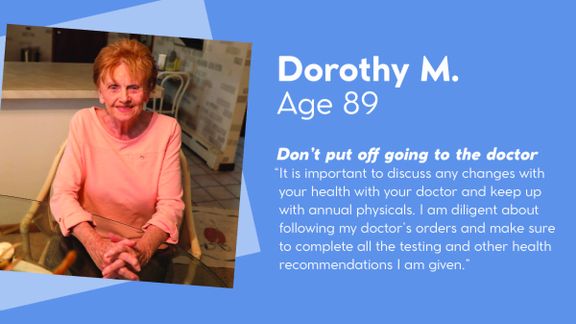
Whether you find yourself taking more frequent trips to the bathroom at night or develop a nagging pain in your back, don’t ignore your symptoms until they become unbearable. Addressing symptoms early on allows you to identify the cause and begin a treatment plan that may be less invasive with a shorter recovery time.
Connect with others
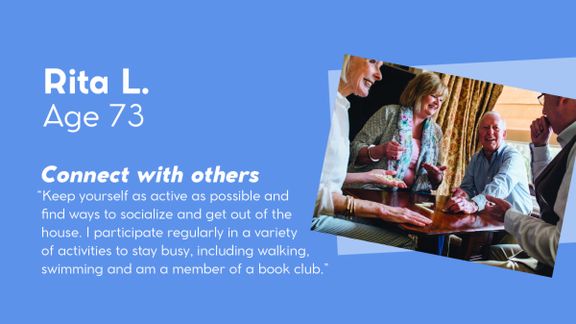
As you age, you may find yourself less active than you used to be, and over time, this can lead to feelings of isolation. Maintaining strong relationships and ties to the community can add meaning, and possibly even years, to your life. You can stay connected in a number of ways from volunteering to joining a local club or attending social gatherings with friends and family. Pets can also be a great source of companionship.
Maintain a positive outlook
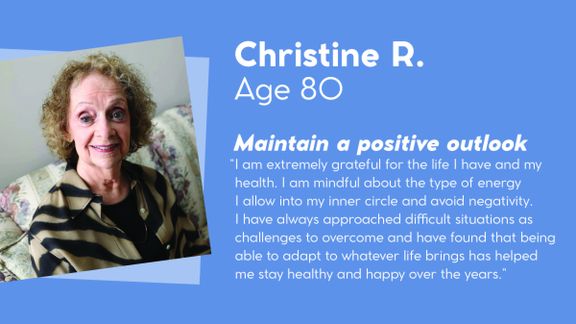
Staying positive (and smiling) not only improves your mood, it may also add years to your life. Smiling signals your body to release chemicals called endorphins which are associated with happiness and can relieve stress and pain. Research has found that people who are more optimistic tend to live happier, longer lives. Smiling at a stranger, laughing with friends or keeping a gratitude journal are simple ways for you to stay positive.
Break out of your routine
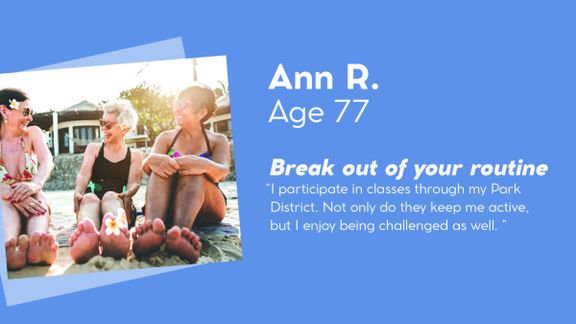
Having more time for leisure makes retirement the ideal time to try something new. While routines can provide stability and be a source of comfort, operating in auto-pilot reduces brain stimulation. Your brain is a muscle, and just like the other muscles in our bodies, it is important to exercise it regularly. You can break out of your routine and challenge your mind by trying new foods, learning a new language, taking a new route to the store, completing a puzzle or playing word and recall games. Challenging your mind will reduce your chances of developing memory loss down the road.
Find balance
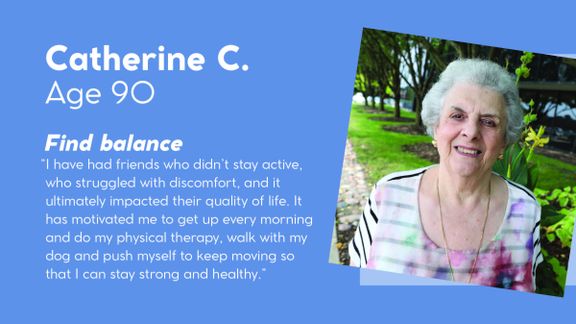
In addition to cardiovascular and strength-building exercises, include activities that improve your balance as well. Better balance reduces your risk of falls, which can have serious health consequences as you age.
Make rest and relaxation a priority
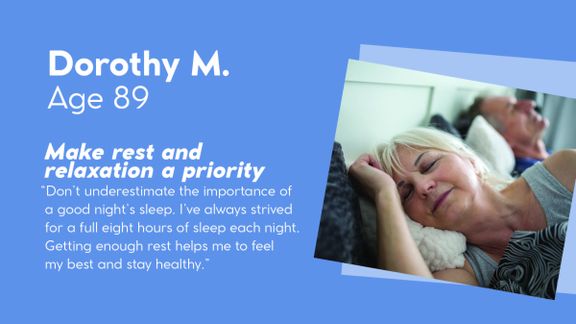
Retirement should be relaxing, but for many, transitioning from a regular work routine to increased leisure time can be difficult. During this time, it is not uncommon to experience sleep disruption or increased stress. To make the transition as smooth as possible, relaxation methods like meditation or practicing mindfulness can help. Being relaxed and well-rested offers many physical and emotional benefits, including improved focus and memory, as well as better immunity and digestion. Make relaxation a part of your daily routine with activities like coloring, reading, meditation or yoga.
As you age, it is important to build a strong relationship with a physician you trust. Being proactive and having open communication with your physician makes it easier to identify new health conditions and prevents your existing conditions from worsening. For more information on our physicians, or to find a primary care physician to keep you feeling your best well into your golden years, schedule an appointment today.
Health Topics:





